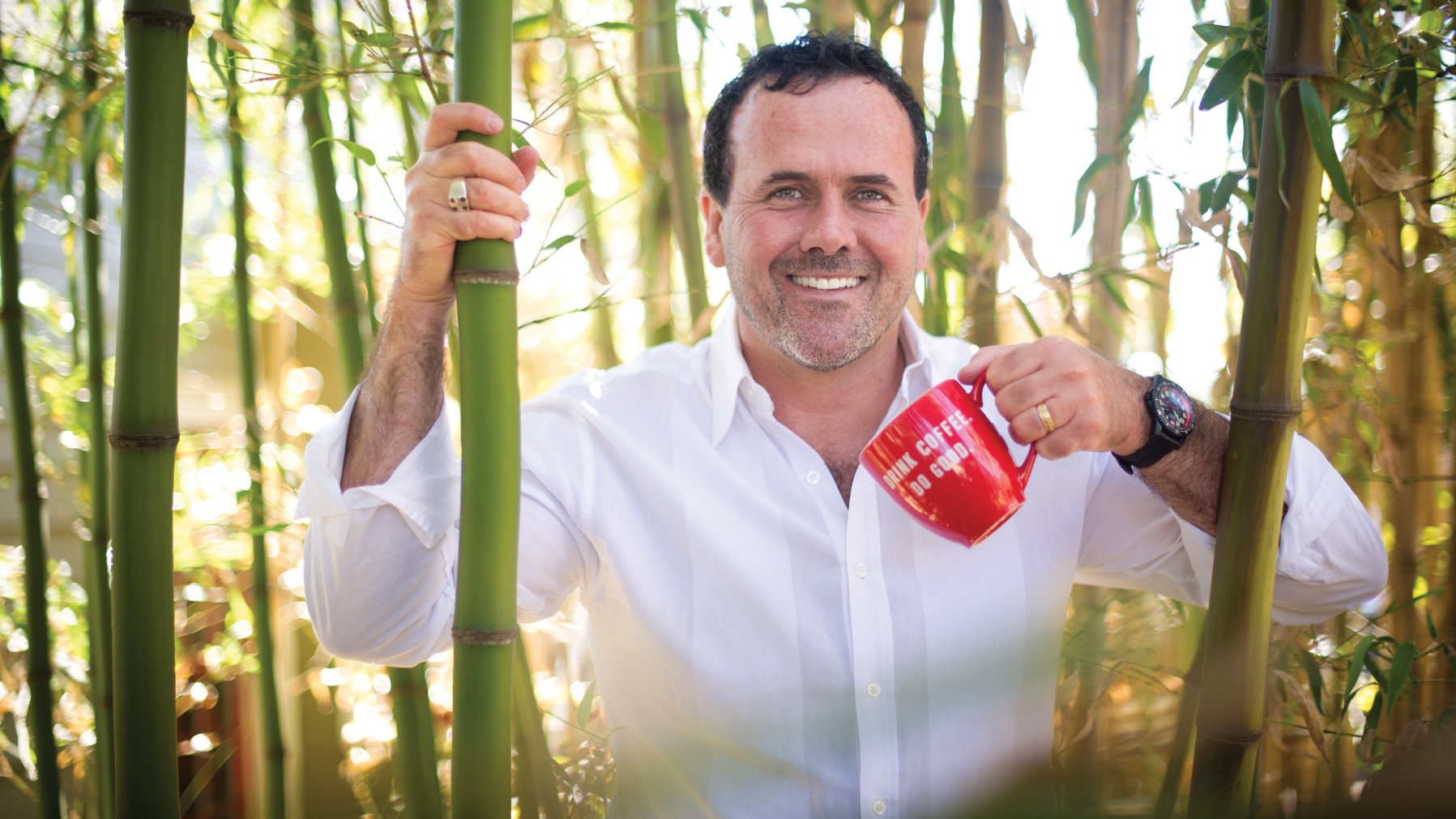As an industrial psychologist, Jonathan Golden helped companies grow stronger through team building and management training. But he wanted to do something more. When a Rwandan bishop encouraged him to help coffee farmers in Rwanda, Golden was sold. In 2006, he bought 20 bags of coffee—2,640 pounds—from Rwandan farmers. He borrowed $20,000, bought a used roaster on eBay, and began selling the coffee to church cafés. He opened a coffee shop in Roswell, Georgia, and Land of a Thousand Hills Coffee Company was born.
The company now works with thousands of farmers in Rwanda and Haiti through microfinance loans, agricultural expertise, and providing bikes for transport. It will buy about 100 tons of coffee this year, paying farmers well over the fair trade minimum of $1.40 per pound. It's roasted in the U.S. and sold to about 600 churches; profits are re-invested in more farmers.
The company is visible at Christian rock shows and conferences, where it's known for the slogan, "Drink Coffee. Do Good." Q founder Gabe Lyons says Golden "thinks through the entire process of how their work contributes to the good of everyone, from the farmer to the customer. They create sustainable economic environments for people in developing countries, while providing U.S. consumers with great coffee."
Question & Answer
Your company goes beyond fair trade to what you call "community trade." Explain.
Fair trade puts a floor on prices for commodities. Community trade goes beyond mere economics and builds relationships. We ask people, "What are your other needs?" In one village, the children wanted a soccer field; we built one. In another, with help from our friends in [Christian rock band] Third Day, we started a sustenance farm, growing potatoes, beans, and corn to help feed that village's 2,000 orphans. And we have opportunities to share the gospel.
I hear that the work has resulted in some amazing reconciliation stories.
Yes. John and Clementine grew up next to each other; he was Hutu, she was Tutsi. During the 1994 genocide, he murdered her father and all of her siblings, and even went after her. After the genocide, he ended up in prison, where he heard the gospel and accepted the Lord. John later returned to the village and met Clementine at the coffee washing station, where he asked for her forgiveness. When they told me their story, they said that they had experienced reconciliation through coffee. They now literally farm side by side. It's grace in action.
Where do you go from here?
I've been asked to work with pastors in Rwanda, training them on Christianity in the marketplace. We are now working with six villages—three in Rwanda, three in Haiti—and we have an invitation to Honduras. In five years, we hope to be helping 10,000 farmers and their families in at least 25 villages throughout the world, and serving coffee to 3,000 churches in the U.S. We want to continue making a difference for the gospel through alternative capitalism.
More: DrinkCoffeeDoGood.com
Hometown: Roswell, Georgia
Church: St. Peter's Place Anglican
Family: Brenda (wife); Jonathan, 16, Josh, 14 (children)
Reading now: Drive, by Daniel Pink; The Man Who Was Thursday, by G. K. Chesterton; Unspoken Sermons, by George MacDonald
On your iPod: Ben Harper and "lots of good '70s rock"
Favorite movie: The Mission
Favorite Bible verse: Micah 6:8
Favorite coffee: blend Bukonya Ikawa
Copyright © 2011 Christianity Today. Click for reprint information.
Related Elsewhere:
More information can be found at DrinkCoffeeDoGood.com.
Previous "Who's Next" sections featured Paul Louis Metzger, Amena Brown, David Cunningham, Timothy Dalrymple, John Sowers, Alissa Wilkinson, Jamie Tworkowski, Bryan Jennings, L. L. Barkat, Robert Gelinas, Nicole Baker Fulgham, Gideon Strauss, W. David O. Taylor, Crystal Renaud, Eve Nunez, Adam Taylor, Matthew Lee Anderson, Margaret Feinberg, and Jonathan Merritt










